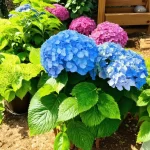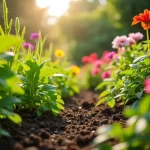hydrangea Farm refers to a place dedicated to the cultivation and sale of various hydrangea plants, often providing a beautiful, serene environment for visitors to enjoy the stunning blooms. Hydrangeas are beloved for their large, vibrant flower heads and are popular choices for gardens and landscaping.
A hydrangea farm is not only a spot for purchasing these magnificent shrubs but also serves as a place where you can explore their beauty in a natural setting. Whether you’re searching for a hydrangea farm near you or considering a trip to one of the larger commercial farms that showcase vast fields of hydrangeas, the experience promises to be captivating.
The Allure of Hydrangea Farms
Hydrangea farms provide a multi-sensory experience, with an array of colors, scents, and textures. As you walk through rows of blooming hydrangeas, you can’t help but marvel at their variety. The colors range from soft pastels to vibrant hues, allowing for endless landscaping possibilities.
Facts about Hydrangeas
| Fact | Information |
|---|---|
| Number of Varieties | Over 75 species and numerous cultivars |
| Blooming Season | Spring to fall (depending on the variety) |
| Color Influence | Soil pH affects flower color; acidic soil yields blue, alkaline yields pink |
| Height Variability | Ranges from 1 to 12 feet |
types of hydrangeas Available
Hydrangea farms often cultivate a wide range of varieties, ensuring there’s something for every gardening enthusiast. Here are some common types you might find:
-
hydrangea macrophylla (Bigleaf Hydrangea)
- Most popular variety with spherical blooms.
- Blooms can be pink or blue, depending on soil pH.
-
Hydrangea paniculata (Panicle Hydrangea)
- Cone-shaped flower clusters.
- Hardy and blooms at the end of summer.
-
Hydrangea arborescens (Smooth Hydrangea)
- Known for their large, rounded flower clusters called ‘Annabelle’.
- Very hardy and easy to grow.
-
Hydrangea quercifolia (Oakleaf Hydrangea)
- Distinctive, lobed leaves resembling oak leaves.
- Blooms are white, turning pinkish as they age.
-
Hydrangea anomala (Climbing Hydrangea)
- A climbing variety perfect for trellises or walls.
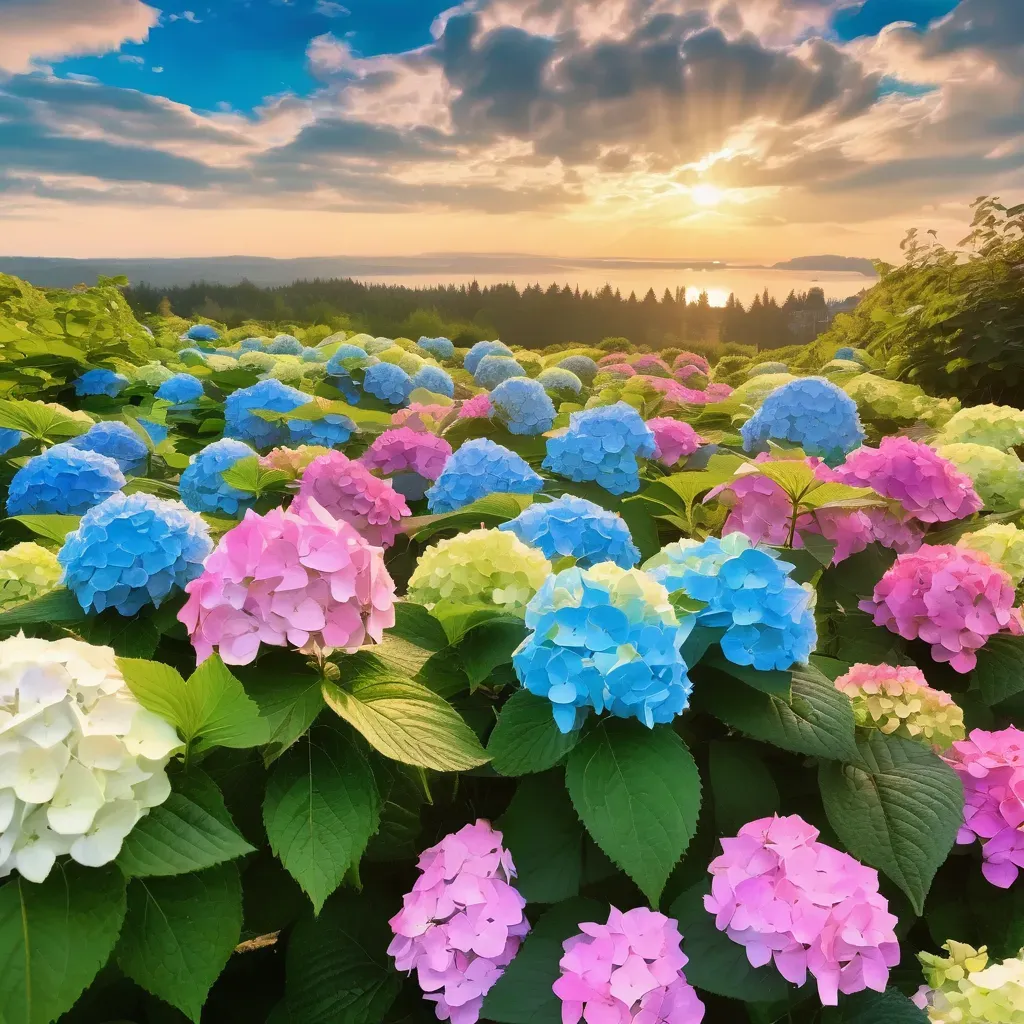
Reference Video
Care and Growing Tips
Hydrangeas are relatively easy to grow, making them perfect for both novice and experienced gardeners. Here are some key care tips:
- Soil Requirements: They thrive in well-drained, moist, and rich soil.
- Sunlight: Most hydrangeas prefer partial shade, particularly in hot climates.
- Watering: Regular watering is crucial as they require consistent moisture.
- Pruning: Prune in late winter or early spring to promote healthy growth.
For more detailed information, you can visit The Spruce.
Seasonal Blooms and Visitor Activities
Many hydrangea farms provide a number of seasonal activities for visitors. From guided tours to photography opportunities, guests can immerse themselves in the beauty of the blooms.
Common Activities
- Bloom Walks: Guided tours through fields of hydrangeas.
- Photography Workshops: Learn techniques to capture vibrant colors.
- Hydrangea Picking: Some farms allow guests to pick their own blooms.
- Events and Weddings: Many farms transform into stunning venues for special occasions.
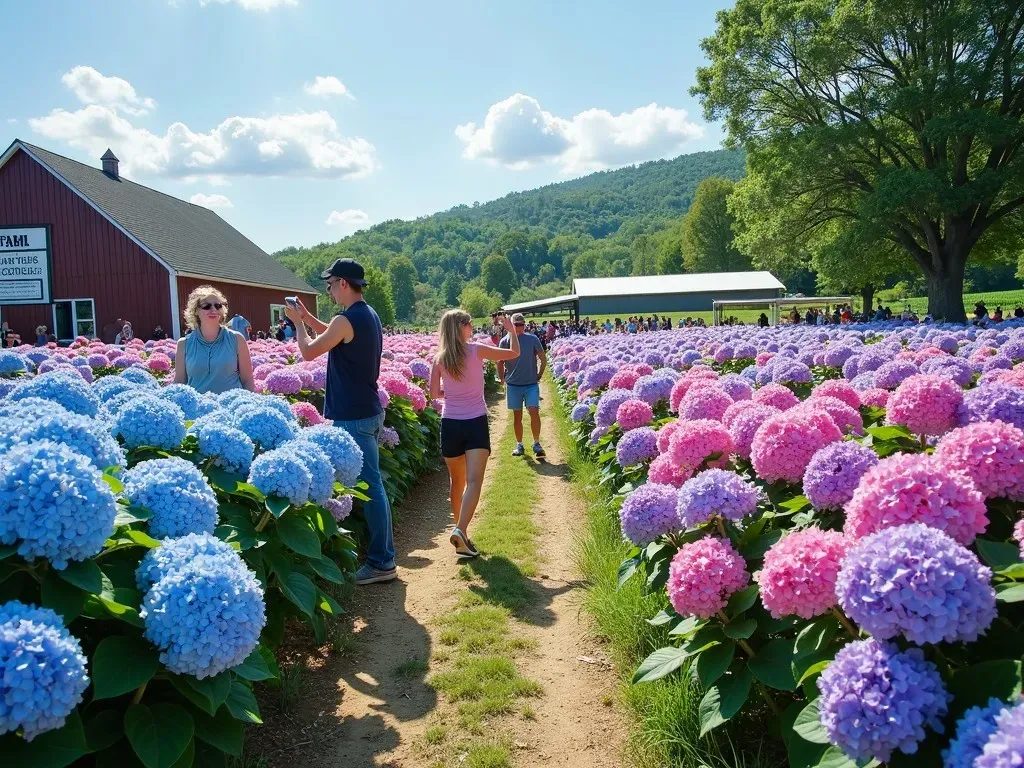
Why Visit a Hydrangea Farm?
Visiting a hydrangea farm is not just about buying flowers; it’s about the experience. Here are a few compelling reasons to make the trip:
- Therapeutic Environment: Nature has a calming effect, and the vibrant colors of the hydrangeas can help reduce stress.
- Learning Opportunities: Gain insight into horticulture, plant care, and botanical knowledge.
- Community Connection: Many farms host events and farmers’ markets, allowing you to interact with the local community.
Frequently Asked Questions (FAQ)
1. Where can I find a hydrangea farm near me?
To locate a hydrangea farm nearby, try searching on Google Maps or local directories. Enter “hydrangea farm near me” to get tailored results.
2. What’s the best time to visit a hydrangea farm?
The best time to visit a hydrangea farm is during the blooming season, which varies geographically but generally occurs from late spring through summer.
3. Are hydrangeas suitable for my garden?
Most hydrangeas are adaptable and can thrive in various environments. However, it’s essential to consider your local climate and soil conditions before selecting a variety.
4. Can I grow hydrangeas in pots?
Yes, many people successfully grow hydrangeas in pots. Ensure the pots have good drainage and use the recommended soil mix for optimal growth.
5. Can I get involved in a hydrangea farm’s activities?
Most hydrangea farms offer classes, workshops, and even volunteer opportunities. Contact the farm directly to inquire about available programs.
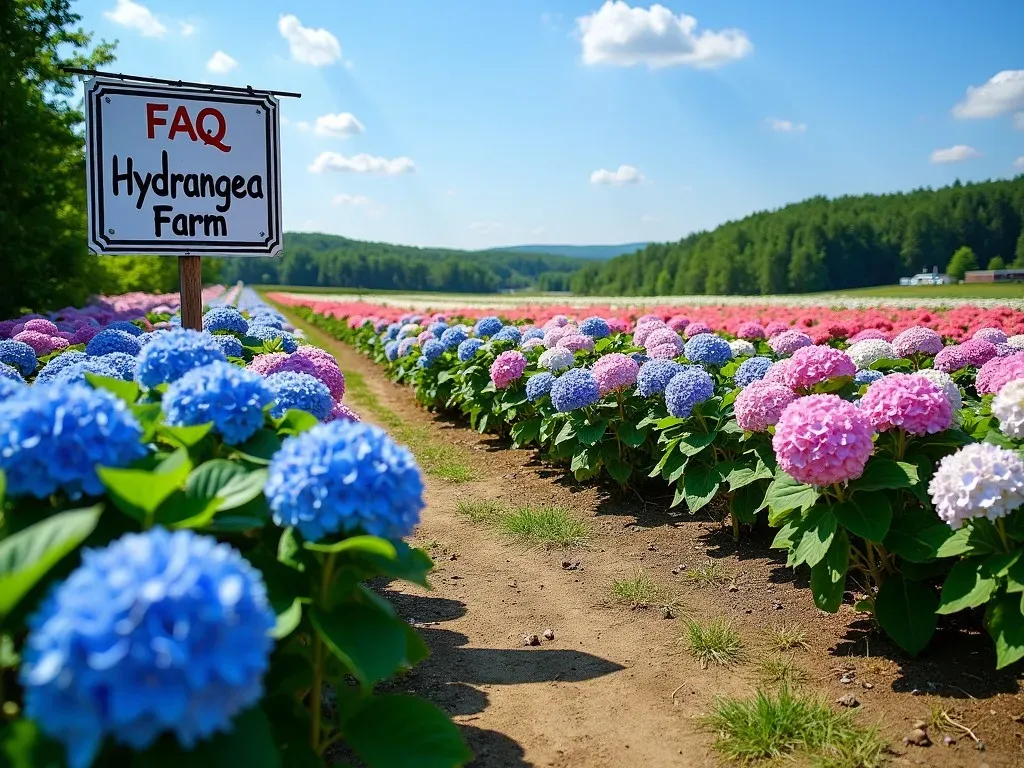
Conclusion
Hydrangea farms are not just places for buying flowers; they are vibrant, living displays of nature’s beauty. With stunning blooms set against picturesque backdrops, a visit promises to uplift your spirit and enhance your garden’s appeal. Forever passionate for hydrangeas, many farms also engage in sustainable practices, ensuring that these beautiful blooms will be admired for generations to come. So make plans to explore a hydrangea farm today!

